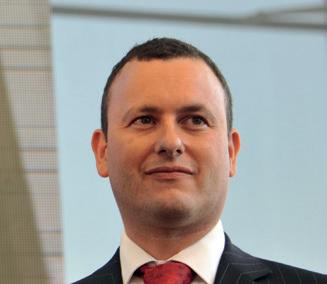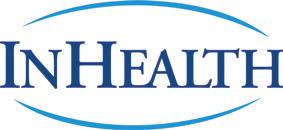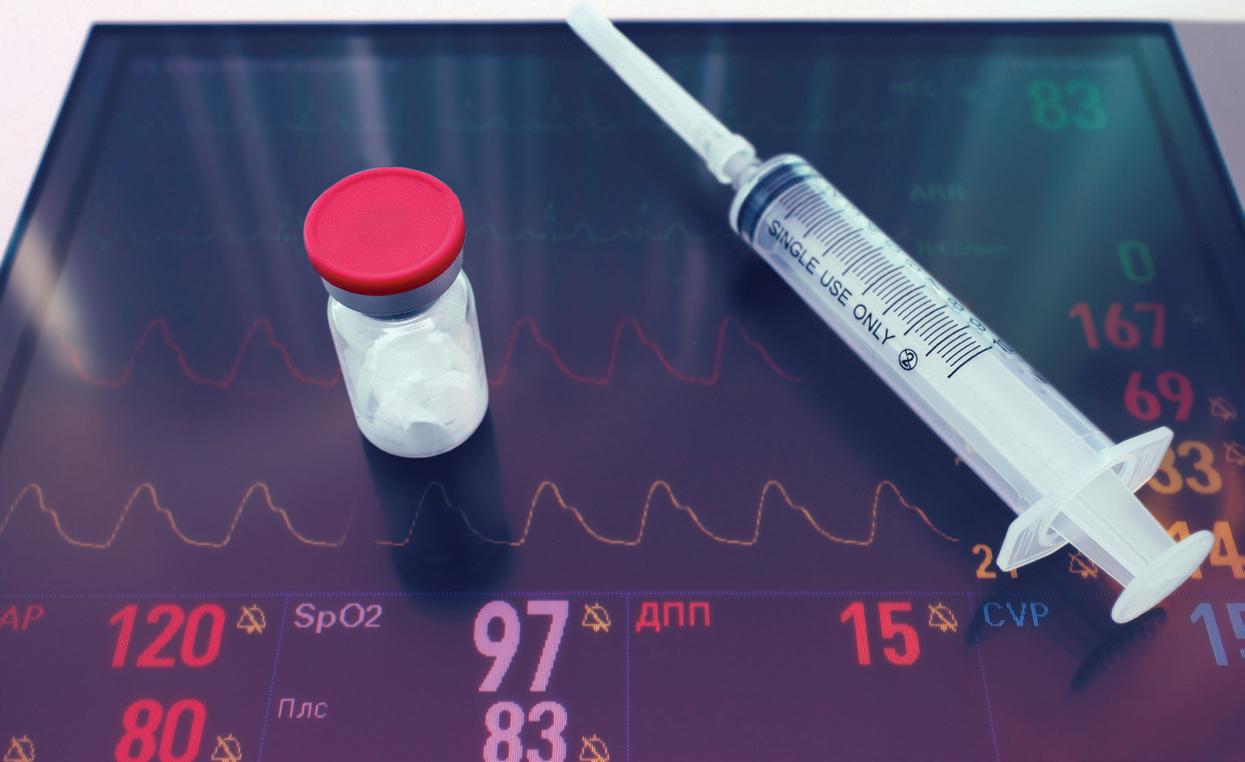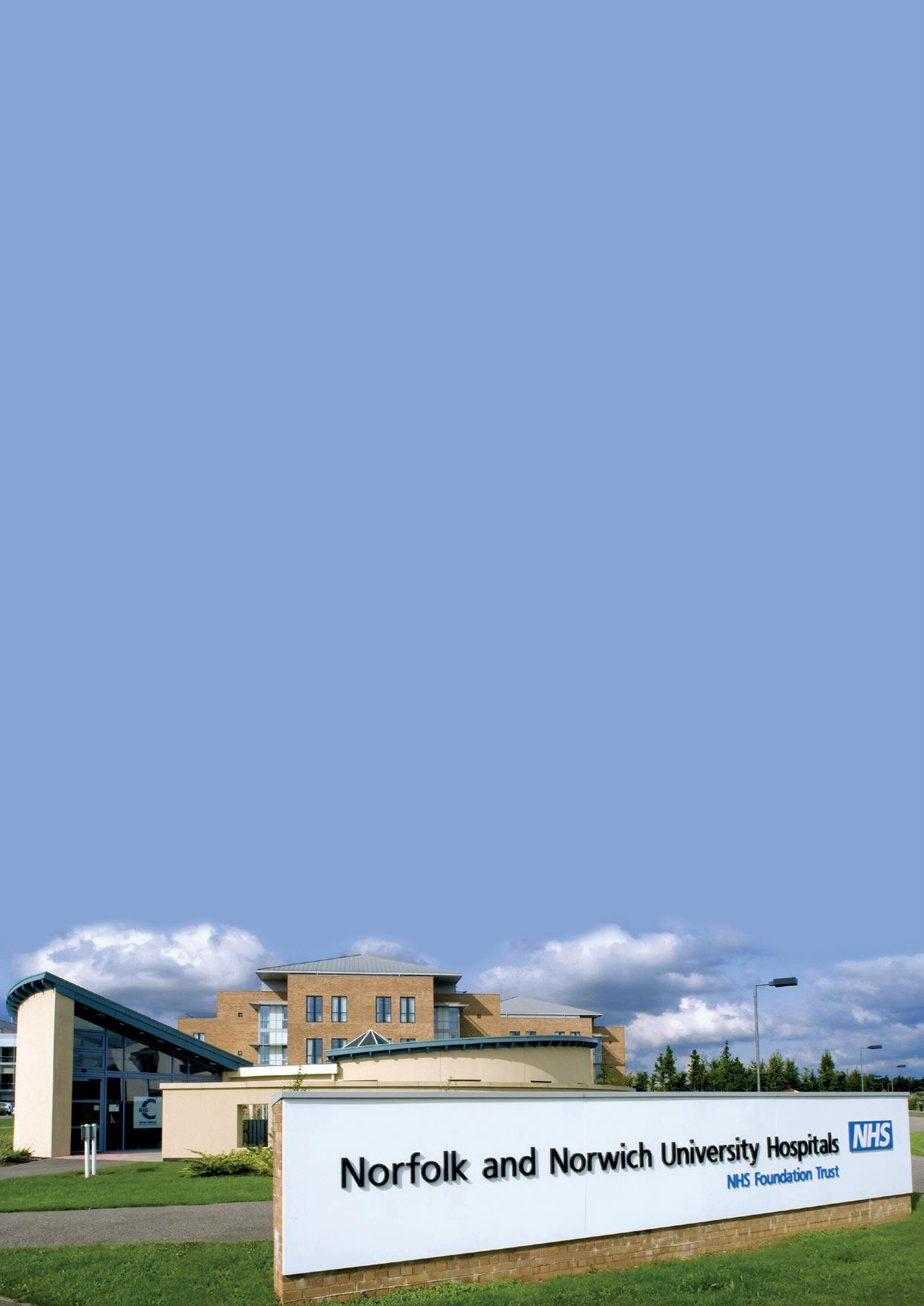
28 minute read
Cyber security
from Health Business 20.1
by PSI Media
How technology can help ease NHS winter pressures

Sascha Giese, Head Geek™ at SolarWinds, discusses the failings of legacy NHS technology and how cyber security is vital for the well-being of the health service
Winter brings challenging circumstances for the NHS, with the impact of seasonal bugs and flu, among other cold-weather conditions, and places an increased burden on services and resources. Indeed, as recently reported by The King’s Fund, back in the winter of 2018/19, nearly all NHS beds were occupied due to 18,000 patients a day arriving as emergency admissions during February 2019. Peaks in demand such as this will test the resources of any organisation, even one as big as the NHS, and it is perhaps no surprise important stakeholders such as the British Medical Association (BMA) have previously characterised the winter situation as a ‘crisis’. The reasons behind the challenges faced by the NHS during winter are extremely diverse, but there can be no doubt the reliability, resilience, and security of IT infrastructure is fundamental to the ability of any healthcare organisation to meet major spikes in demand—seasonal or otherwise. At any time of year, a security breach or any serious system downtime can cause huge problems for the delivery and efficiency of healthcare services. Add the extra pressure common at this time of year, and an inconvenient IT problem can quickly evolve into a wider crisis. The failings of old technology It’s inevitable in a public sector organisation with over 70 years of history, the NHS will always feel the impact of ageing IT. Even when the technology continues to do the job it was built for without obvious problems, this ‘legacy’ can bring with it an unwanted collection of deeply embedded problems, from reliability, collaboration, and performance issues to an inability to scale when demand rises. When older hardware and software is in daily, mission-critical use within organisations as large and complex as the NHS, the technical and financial issues associated with replacing it are intimidating. A current example is the recent arrival of the end of support for Microsoft® Windows® 7 – an operating system widely used across the NHS. Going forward, Microsoft has now stopped providing security updates and support for the product and users have a choice of paying for extended support, upgrading to the current version of Windows, or sticking with what they’ve got in the hope they remain secure. This is no small problem.
According to information from the Department of Health, there
are still ‘approximately 1.05 million NHS computers
using Windows 7 from a total 1.37 million’. Aside from the difficulties of upgrading that number of computers to Windows 10 in the short term, it shows the sheer size of the task facing the NHS for any wholesale technology change. And the process can take years –indeed, five years It’s inevitable in a public sector organisation with over 70 years of history, the NHS will always feel the impact of ageing IT
after Windows XP went ‘end of life’, the NHS still has some 2,300 computers using XP. There are always going to be challenges with using legacy technology. Despite this risk, the key to keeping systems going is to make the risk as small as possible, through implementing the necessary technology and training to primarily stop cyber threats in their tracks, but also to reduce the negative impact of a potential failure. Every organisation will face these issues; what’s important is how well they cope with them.
Cyber security – Vital to the well-being of the NHS Building a strong cyber security strategy focusing on the key requirements of detection and prevention requires a co-ordinated approach from the top down. At a leadership level, efforts should include improving security best practices. For example, because the NHS employs around 1.7 million people, the risks presented by insider threats, whether unintended or malicious, are considerable. Indeed, the security risks from insiders can often be more numerous and acute than those coming from external criminal hackers or foreign governments. As a result, end-user security awareness training, network access control, and effective patching are among the best routes to improving insider threat detection and prevention. In general, organisations investing in best practice often see an improvement in security effectiveness, and processes such as employee background checks can play an important role in controlling the risks presented by malicious insider threats. These should form part of ‘basic security hygiene’ for the NHS and will prove of immense benefit under almost all circumstances. But this only represents part of the challenge. In their attacks against hospitals, cyber criminals probe a variety of apps, systems, and environments, trying to find critical servers where Personally Identifiable Information (PII) resides. These tactics make multi-layered defences essential to augment hospital network security with intelligent threat monitoring, triggering alerts, and automated incident response software to quickly remediate cyber security issues.
Ultimately, the perennial challenge for the NHS is one of funding. In the case of more advanced and sophisticated security tools, for example, the shopping list can be long. However, to help mitigate the risks of security problems exacerbating the wider winter pressures, intrusion detection and prevention tools, endpoint and mobile security, web application firewalls and encryption technologies are now ‘must-haves’.

It would be foolish to suggest technology alone can take away the challenges brought to the door of the NHS every winter. But it can certainly play a significant role in helping the organisation deliver infrastructure that is reliable, secure and can flex effectively whenever demand dictates. L
FURTHER INFORMATION
www.solarwinds.com
Cyber incidents in last year for two thirds of organisations
New research has revealed that 67 per cent of healthcare organisations have experienced a cyber security incident in the past year. Highlighting the serious threat that data breaches and malicious attacks pose to the UK’s health-related data, the Clearswift analysis also found that 48 per cent of incidents within the health sector occurred as a result of introduction of viruses or malware from third-party devices – including IoT devices and USB sticks. The survey found that further causes of cyber security incidents within the healthcare sector included employees sharing information with unauthorised recipients (39 per cent), users not following protocol/data protection policies (37 per cent), and malicious links in emails and on social media (28 per cent). The number of security incidents are in stark contrast with further findings from the survey which revealed that 24 per cent of respondents had an adequate level of budget allocated to cyber security.
Alyn Hockey, VP of Product Management, Clearswift, said: “The healthcare sector holds important patient data, so it is alarming to see such high numbers of security incidents occurring in the industry. The healthcare sector needs to securely share data across departments and organisations in order to facilitate excellent patient care. With the proliferation of third-party devices in this process, it’s more important than ever that the industry bolsters its cyber security efforts to reduce the risk of everything from unwanted data loss to malicious attacks and focusses on keeping patient data safe and secure.”
Records management subject matter experts for Health & Social Care, helping Healthcare Organisations with:

• Records management strategies
• Electronic document management consultancy
• Managed service project delivery
• Digital outcomes and specialists resources • Compliance and audit
• Internal scanning bureau implementation
• Project reviews and gap analysis
info@edmhealthcareconsulting.co.uk www.edmhealthcareconsulting.co.uk
Where is your Trust in its journey to a digital health record?
95/226 Trusts yet to implement an Electronic Document Management system
43 Trusts actively considering an EDM implementation
Why implement an EDM?
Electronic document management enables NHS Trusts and healthcare organisations to reduce and where possible, remove ongoing operational Health Records Management costs. Some of the many benefits can include:
• Operational cost reduction • Achieve paperlite/paperless state
• Improved availability and accessibility of health records • Aiding information and records management compliance
How can EDM Healthcare Consulting Ltd. help your Trust or Health Board?
MAXIMISE the operational savings you can achieve from your EDM implementation. IMPROVE workflows and the availability of clinical information at the point of need. ACHIEVE a paperlite or paperless state within your organisation.
Want to find out more? We're attending
REDUCE your organisation’s reliance on inefficient paper processes.

Digitally transform the way your organisation manages quality and compliance
WE ARE EXHIBITING AT


Visit us at stand C8
60 Scan the QR code or visit radarhealthcare.co.uk/dhrewired to book some time with us at the event
Scan me
@radarhealthcare /radarsoftware
Empowering organisations to create digital experiences
Eggplant helps businesses to test, monitor and analyse their end-to-end customer experience and continuously improve their business outcomes.
Companies worldwide use Eggplant to surpass competitors, boost productivity, and delight customers. How? By dramatically enhancing the quality, responsiveness, and performance of their software applications across different interfaces, platforms, browsers, and devices — including mobile, IoT, and desktop — in agile, DevOps, and innovative application and data environments.
Eggplant is a global company serving more than 650 enterprise customers in over 30 countries. Eggplant has offices in London, Boulder Colorado, Philadelphia, Berlin Germany, with additional development centers and regional offices around the world. Sectors include automotive, defence and aerospace, financial services, healthcare, media and entertainment, and retail. Eggplant is backed by The Carlyle Group (NASDAQ: CG).

FURTHER INFORMATION
www.eggplantsoftware.com +44 20 7002 7888 sales@eggplant.io
Powering your Projects
Global supplier of power, data, & control cables
Qualified technical experts
Quality and regulatory compliance assurance
Next-day UK delivery from stock
KITEMARK ™
KM 662609
We’re the trusted partner for cable projects Get in touch to see how we can make a difference to your installation
Excitement builds for Rewired 2020

Digital Health Rewired 2020, 3-4 March at London Olympia, will feature an expanded programme focused on showcasing some of the best start-ups from across the UK and Europe Digital Health Rewired
UK health care is replete with innovative digital projects big and small, but the key challenge remains to share knowledge, identify and scale up best practice. Despite the promise of new disruptive technologies, they often struggle to get on the radar of the NHS IT leaders leading transformational change.
Digital Health Rewired 2020, which takes place on 3-4 March at London Olympia, is to buck that trend and bring the diverse UK digital health community together to discover new possibilities for delivering health and care services through technology. The Rewired 2020 programme focuses on providing attendees from all parts of health and care with real world actionable lessons and insights from those leading some of the most exciting digital health initiatives from the UK and internationally.
The show opens with the one-day Rewired Leadership Summit for the most senior NHS CCIOs and CIOs, leading into day two with the Rewired Conference and Exhibition, aimed at everyone interested in helping shape the digital future of health and care. Already confirmed is a mix of compelling speakers, including the NHSX senior management team; Matthew Gould (CEO), Tara Donnelly (CDO), Simon Eccles (CCIO for health and care and deputy CEO), Digital Health Awards winners - Mandy Griffin, (CIO of Calderdale and Huddersfield), Gareth Thomas (CCIO at Salford Royal), Natasha Phillips (CNIO at UCL) - and a glittering range of digital disruptors and CEOs of cuttingedge digital health start-ups.
Day one: Leadership Summit for 300 senior health leaders The two-day format that worked so well in 2019 remains. Rewired kicks off with the one-day Rewired Leadership Summit for the most senior NHS CCIOs and CIOs. For 2020, the keynote is a hugely impressive digital leader, diversity and champion and president of techUK, Jacqueline de Rojas CBE, who will open the summit. She will discuss the key Jacqueline de Rojas, CBE, President, techUK
attributes of effective digital leadership to achieve large-scale digital transformation and draw on the vital importance of having a diverse range of leaders, reflective of wider society outside healthcare. Other keynote speakers confirmed so far include noted data privacy campaigner Phil Booth, co-ordinator of MedConfidential, and former technology advisor to Simon Stevens and Dr Ben Marruthappu, CEO of Cera Care. The afternoon programme will also include panel sessions from the brilliant Shuri Network and DigitalHealth.London, led by Dr Shera Chok and Yinka Makinde. The popular Long View also returns, bringing together past and present leaders to candidly discuss how to balance the relationship between centre and local on health IT. Day two: a packed programme for the digital health community Day two is the Rewired Conference and Exhibition, aimed at everyone interested in helping shape the digital future of health and care. Over 1,800 delegates attended Rewired 2019 and 2,500 are expected for 2020.
The conference will feature seven packed tracks of top speakers and inspirational leaders on digital health. Delegates will be provided with practical insights, knowledge and ideas they can take home and act on. The seven dedicated conference tracks will cover: Digital Transformation; Clinical Software; Interoperability Showcase; CCIO/CIO National
Conference; AI and
Analytics; Cloud and Mobile; and shared care. Showcasing
cutting edge digital health start-ups Disruptive digital health start-ups will feature across all the Rewired conference tracks alongside some of the most innovative NHS IT leaders, talking about how they have harnessed digital to benefit patients. High impact digital health disruptors to
catch at Rewired 2020 include; Carron Manning, co-founder of iPrescribe Exercise, Sina Habibi, founder of Cognetivity, and Daniel Nathrath, co-founder of Ada Health.
iPrescribe Exercise is developing a service based on personalised exercise prescription programmes for citizens combining AI programmes and Apple Watch sensor data. Physiotherapist, Carron, co-founded iPrescribe Exercise threeyears ago, to provide personalised exercise programmes for all.
Cognetivity is reinventing dementia detection using a new cognitive testing platform. The Integrated Cognitive Assessment is a five-minute test which uses artificial intelligence (AI) and machine learning techniques to help detect the earliest signs of impairment.
Ada, meanwhile, is connecting medical knowledge to intelligent technology to help people actively manage their health and medical professionals to deliver effective care. Ada is already the number one medical app for 130 countries, with 15 million assessments have been completed since its global launch in 2016. Pitchfest returns And at the heart of the start-up focus at Rewired 2020 will be the Rewired Pitchfest, the quick-fire Dragon’s Den style competition for start-ups less than three years old, that attracted over 80 entries in its first year. The 2019 Pitchfest winner Testcard will be presenting, and sixteen finalists will battle it out in four live heats for a place in the final, which will be held on the main stage and be hosted by NHSX’s chief digital officer, Tara Donnelly.
The start-up stage, meanwhile, will be a key feature of the Rewired exhibition, providing a home for the Pitchfest heats and quick-fire presentations from a range of innovative start-ups. The 2020 Pitchfest prize is bigger than ever, thanks to Chelsea and E At the heart of the start-up focus at Rewired 2020 will be the Rewired Pitchfest, the quick-fire Dragon’s Den style competition for start-ups


Legacy IT is the patient
It is crucial that your data is managed with the very highest levels of security. Blackthorn is a tried and tested system that enables clients to manage their workload with total security, integrity and accountability
The discussion about reimagining healthcare through the adoption of digital technologies continues unabated. Here, the narrative is to use technology to greatly improve the sharing of information between health and care professionals, whilst also giving people better access to the care they need. In the glare of healthcare’s digital agenda, it is sometimes easy to overlook the fact that the public sector is, and has been, reliant on technology for many years, and some of this technology has now reached – or is fast approaching - the end of its serviceable life. For a lucky few, the digital agenda will supplant the need for direct replacements but for the rest, the legacy system will require palliative care or replacement by newer, serviceable technology.
This is exactly the position that the Department of Health & Social Care (DHSC) found itself in in 2016.
The Road Traffic (NHS Charges) Act 1999 gives the DHSC the legislative power to recover NHS treatment costs from patients involved in road traffic accidents if the patient has personal injury insurance, something often incorporated into motor vehicle insurance policies.
The costs recovered are based on set rates for inpatient and out-patient treatment, and whilst these do not cover the actual cost, they still generate significant revenues for Trust hospitals. The Health and Social Care (Community Health and Standards) Act 2003 extended the scheme to all personal injury claims, not just those resulting from road traffic accidents. The scheme is administered by the Department of Work and Pensions (DWP) on behalf of the DHSC. Information supplied by motor vehicle insurers to the DWP following a road traffic accident is verified by the healthcare provider for accuracy, in particular treatment/consultation dates.
New Injury Cost Recovery (ICR) claims are forwarded by the DWP to the appropriate healthcare provider using a Lotus Notes platform (client/ server technology) provided by the DHSC. IBM acquired Lotus Notes in 1995 but murmurs from IBM mid-twenty 10’s about ongoing support for Lotus Notes created uncertainty amongst the client base and many existing customers, including the DHSC, started looking at migrating away from the Domino (Lotus Notes) platform.
The ICR treatment verification service was one of many that needed to find a new home and the DHSC’s approach was to engage with industry in the form of a soft market test – an exploration into the possible, with vendors putting forward solutions against draft requirements. One key requirement was security – any new service would need to afford patient data adequate protection from unauthorised access. This was especially important where migrating into ‘the cloud’.
Enter Blackthorn GRC Limited, an established albeit boutique software and software services provider with the agility and deftness to provide clients with a very flexible and personalised service. High up the DHSC’s list of requirements was a solution that looked and functioned exactly the same as its predecessor. A system with all the foibles of early 90s forms styling and absent of the context sensitive pop-ups and decluttered screens that define best practice now. This curious requirement was not without merit; the transition from old to new technology together with the aggregation and cleansing of approximately 1.5 million data records, all within the pending shadow of new GDPR

legislations, was likely to take its toll, without having to also worry about the retraining/ familiarisation of over 800 users from around the country. Delivering familiar forms would mostly alleviate the need for training. A cloud-based solution was required that could facilitate the automatic and secure transfer of sensitive information between the DWP and NHS, support extant NHS processes and return the validated information whilst maintaining appropriate separation of concerns between hospital trust groups. The solution needed to work using standard web browsers with no additional plug-ins, add-ins or controls. It also needed to work with a range of versions of MS-Office and browser technologies. Blackthorn’s solution was to use its generic GRC (Governance, Risk and Compliance) software as the backbone of the new ICR system, leveraging pre-existing functionality to meet virtually all of the DHSC’s requirements, and relying on configuration data to deliver the required visualisation and business functionality.
By avoiding excessive coding, Blackthorn, was able to expedite the department’s requirements very quickly, and to check accuracy through fortnightly ‘show and tell’ sessions with the DHSC’s project team. Hosted with a third-party specialist public cloud service provider, Blackthorn architected the virtualised hosting environment, taking on full responsibility for data security which need to be inherent in the design both to meet the Government’s cloud security principles but also to achieve connection to the HCSN healthcare network.
Importantly, the work programme was delivered ahead of the planned cut-off date for the old Dominos technology, and without any significant disruption to healthcare providers using the ICR treatment verification service.
Blackthorn’s GRC software has many applications but is most commonly used for criminal investigations, fraud investigation, cyber incident response, employment vetting, health and safety and other business processes where a prescribed approach is required to manage activities concerning sensitive data.
Blackthorn’s services are available through the G-Cloud 11 Framework administer by Crown Commercial Services. L

Matthew Gould, CEO, NHSX


Westminster Hospital NHS Foundation Trust and their charity, CW+. The Pitchfest champion, for the first time ever, will be offered the opportunity to have their innovation tested and scaled in a real-world NHS setting.
A new dedicated health developer conference New for 2020 is the Digital Health Developer Conference (Health Dev Conf), an exciting one-day dedicated event for all developers working in the health care sector, from the NHS, independents, big suppliers and start-up. The Health Dev Conf, which will run alongside the Conference and Exhibition, will have a host of practical workshops and educational sessions exploring the tools, platforms and standards available to developers working in health.
Presentations will cover openEHR, UX and UI for health, NHS Identity, open source, blockchain, and the regulation of health apps. In addition a series of interactive workshops will take place to develop delegate’s skills in openEHR standards, NHS Frontend Library, adding NHS Login to apps, My Med Record, FHIR, and GP Connect.
Data Lab: how to harness health data Another new addition to the Rewired 2020 programme is the Digital Health Data Lab. This unique dedicated one-day conference and series of hands-on workshops is focused on helping delegates gain a better understanding of the latest developments in the use of data and data science tools, platforms and techniques to gain benefit and insight from all types of UK health data, either singularly or through aggregation and combination. UK healthcare has reached a tipping point in digitisation, where core baseline automation is now the norm in most organisations. The greatest benefits to patients will now come from harnessing available data to gain actionable insight.
The Data Lab programme will cover latest developments and approaches across UK healthcare organisations (NHS and independent), international exemplars, and include contributions from life sciences and health research bodies.
A diverse range of engaging speakers The original programme brings together the most compelling content from

Caroline CriadoPerez, journalist and campaigner
agenda-setters, local leaders and pioneers across the UK’s digital health sector.
Matthew Gould, the CEO of NHSX, the new agency driving NHS digitisation, will keynote Rewired Conference and Exhibition. He will review progress of the organisation which was set up in July 2019 oversee NHS IT, and explore key priority areas in interoperability, standards and evolution of the GDE and LHCRE initiatives.
Gould will take part in a sofa conversation and Q&A session on the main Digital Transformation stage at Rewired with Digital Health editor-in-chief Jon Hoeksma. He is joined at the conference by Simon Eccles, deputy CEO for NHSX, who will talk about the challenge of getting a CCIO or CIO onto every board and developing future clinical informatics leaders. The afternoon keynote is writer, journalist and campaigner, Caroline Criado-Perez, who will be examining the unconscious biases that emerge from the gender data gaps in healthcare, technology and society as a whole.
Local leaders will also share key lessons and insights from pioneering digital health projects. One of the must-see sessions will be presented by Berkshire ICS CEO, Cathy Winfield, who will outline the digital challenges of creating integrated care and population health.
The next generation of new and emerging CIOs will share how they are meeting the challenges of digital. Four must-see NHS CIOs speaking at Rewired 2020 have recently been announced. David Walliker, the new role of chief digital and partnership officer at Oxford University Hospitals NHS FT, Lisa Emery, the CIO of cancer specialist hospital, the Royal Marsden NHS FT and chair of the London CIO Council will both talk about the challenges and lessons learnt from high-profile NHS CIO roles.
Paul Jones who took up the role of CDIO at Leeds Teaching Hospitals NHS Trust in September, will offer a unique perspective on the challenge of completing the digitisation of one of the largest trusts in the country, whilst Ross Fullerton is the CIO of London Ambulance will reflect on the step-by-step digital transformation of the service’s use of mobile technology to deliver the information paramedics and ambulance crews needed to better treat patients.
Join the digital health revolution Rewired will again bring today’s health IT leaders with the best of digital health startups and those aiming to reinvent health and care through digital. Published by Digital Health, the market-leading publishers of news, research and organisers of the annual CCIO and CIO Summer Schools, we focus on delivering the most compelling speakers and original programmes to ensure Rewired has real buzz and excitement and is a must-attend event of the year. L

We have helped several NHS Foundation Trusts on their digital transformation journeys.
We’re Eggplant and we’re on a mission: to rid the world of bad software.
Improve patient outcomes with Eggplant RPA. Automate your electronic patient records with Digital Automation Intelligence .
Increase productivity and reduce errors by automating the execution of repetitive process tasks.
Test smarter with AI-powered automation that views technology from a user’s perspective.
Find out more at eggplantsoftware.com
The Tavistock and Portman NHS Trust
Eggplant has been working with Tavistock and Portman since Spring 2019. The Tavistock and Portman NHS Trust is a London based specialist mental health trust offering high quality mental health care and training. Like most NHS trusts, it was facing digitisation challenges moving from legacy systems to new technology fit for today’s healthcare
The digitisation challenge The NHS has progressed a long way down its digitisation journey over the last five years. Many Trusts have implemented a variety of either single or multi-vendor electronic patient records - as is the case with Tavistock and Portman as David Wyndham Lewis, director of Transformation and Technology explains:
“We have found that those big multi-vendor platforms have actually created complications within the system. And while it’s helped to improve patient journeys and helped us deal with the increasing numbers of patients, it’s also created challenges in terms of burden on clinicians, nursing staff, and administrators.” Systems tend to be configured, creating a burden in terms of iterative change and testing. They don’t perfectly match the clinical process of each trust because they vary quite considerably.
“Over the last five years we’ve moved to a model where systems are more frequently changed but there is a need for rigorous testing as part of that. We need to be able to move quickly and improve our systems while maintaining that low level of patient risk.” The testing and RPA solution This is when Tavistock and Portman engaged Eggplant from both a testing and a Robotic Process Automation perspective. The trust uses Advanced Care Notes - a well-developed highly configured system for mental health settings. Tavistock and Portman has an in-house development team making those iterative changes alongside its clinicians’ needs. However, it means there’s a much tighter testing schedule than previously required, where updates could be as infrequent as quarterly.
“Each change needs testing and Eggplant significantly reduced the burden on our development staff in terms of testing, and also to an extent - to increase the amount of clinician-driven testing that we’re undertaking, rather than testing systems purely from a technologist’s perspective.” The Eggplant platform allowed the trust to work across multiple systems; a student information management system, a timetabling system, and its electronic patient records, mapping different activity types to plan the best time for activities.

Impact The big differentiator has been the reusability of the platform for different use cases. The trust can now architect the platform to interact with the central patient record and entrap student information once, those interactions are usable for both the robotic processing and the testing. It also means the Trust has been able to build platforms reusable across multiple use cases and it no longer has to rebuild different interactions for every different use case.
“The way that the Eggplant interfaces are built to has meant that we are no longer reliant on highly specialized development skills for all aspects of the process. We’re able to use business analysts to build the majority of our flows through a plant with some support from our higher end development team, rather than that being required for all aspects of every build.” L
FURTHER INFORMATION
www.eggplantsoftware.com
Explore large image datasets and create powerful insights
Zegami combines advanced analysis tools with a unique visualisation interface and allows you to rapidly categorise, label and clean large image datasets, invaluable for many applications including training machine learning models. Leading academics and commercial companies all over the world work with Zegami to gain a competitive edge from their data.
The Plant Accelerator project solves food supply issues in large automated greenhouses in Europe, US and Australia, by giving researchers the ability to view thousands of images all at once on a screen, enabling them to spot patterns or anomalies in physiological and chemical traits. Cancer Research UK funded project, developing a cancer detection system which identifies

cancerous lesions in real-time by highlighting them on the video as the patient is being examined. Siemens is using Zegami for process management and quality control enabling real, actionable insight and informed decision making.
Get a free Zegmami trial and discover how your business could benefit from Zegami.
FURTHER INFORMATION
Tel: +441865 306635 info@zegami.com www.zegami.com
The only NHS equivalent reporting solution
MEDICA Group is the UK`s largest and most experienced teleradiology provider, delivering first class teleradiology reporting services to over 50 per cent of NHS trusts and independent healthcare providers. With a growing network of over 430 Radiologists, MEDICA offers routine, NightHawk and specialist services including cardiac CT, CT colonography, nuclear medicine, DXA, prostate MR, PET-CT and audit.
The company’s market leading emergency reporting service, NightHawk, has been an area of particular investment over 2019. NightHawk now offers exceptional turnaround times, with stroke reporting having an average turnaround time of less than 15 minutes (January 2020). The consultants who are part of the team have an average of over 10 years’ experience and provide local hospitals will access to Neurospecialists during core hours. Referrals into the

NightHawk service are governed by best practise pathways which ensure excellent clinical quality. The service can fit into and support existing rosters, and evidences effective gatekeeping. MEDICA believes that any outsourced radiology service must be of an equivalent standard and quality as that which a patient would receive from the client’s own service. This is the key to MEDICA’s philosophy and is evident in the quality of the organisation’s reporters and its full access to wider patient information and historical imaging.
FURTHER INFORMATION
Tel: 033 33 111 222 www.medicagroup.co.uk
Developing technology for breast cancer screening
Half a million women a year die of breast cancer and yet if detected early enough it’s one of the most survivable cancers. Micrima believes the key is early detection. This requires a method of imaging that is radiation free and comfortable for women so screening can be carried out frequently, from a young age, that women are willing to attend. Micrima has developed the CE marked MARIA ® system which uses radio-waves and involves no breast compression. Today it’s being used as an adjunct to other imaging modalities to reduce the chances of missing a cancer.
In clinical trials it has proven effective at cancer detection particularly in dense tissue, which also occurs most frequently, but not exclusively in younger women. Further development

of MARIA ® is ongoing using the clinical data we have as a result of multiple trials, and machine learning to further improve detection and give an indicator of likelihood of cancer. This is a significant step forward for breast cancer detection. Come and see Micrima on Stand 612 at the Medical Imaging Convention to find out more about this technology, how its being used today and the exciting developments the company will be launching later this year.
FURTHER INFORMATION
info@micrima.com micrima.com
Providing diagnostic and healthcare solutions
InHealth is the UK’s largest specialist provider of diagnostic and healthcare solutions. Annually, the company provides a test, scan, treatment or procedure for more than two million people, across services including MRI & CT managed and mobile, Gastroenterology, PET-CT, Radiographer Reporting, Cardiac (Interventional and nonInterventional), Ultrasound as well as a number of large-scale screening programmes. The majority of InHealth’s services are delivered to NHS patients and service users, from over 300 locations and the company’s own mobile fleet of more than 70 units. InHealth provides safe, effective, responsive and caring services that contributes to the healthcare economy and improve patient outcomes.
Ultimately, the InHealth aim is to make healthcare better by delivering excellence in everything that it does, through continuously improving across its range of services. The company’s mission is to be the preferred provider of high-quality diagnostics and healthcare solutions in hospitals and in accessible community settings, while applying its flexible and dynamic approach to meet some of healthcare’s most pressing challenges. InHealth is proud to be a great place to work, employing more than 2,500 people across the UK.

FURTHER INFORMATION
@InHealthGroup www.inhealthgroup.com










